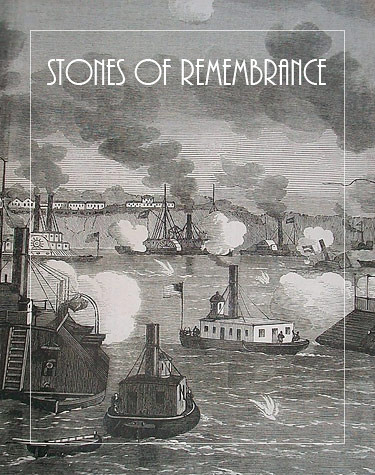
Stones of Remembrance
Short Story by Bob Kirchman
Did I ever tell you the story about my Great Grandfather?” Rupert Zimmerman said casually to Pastor Jon Greene as they sat in Green’s office in the little chapel on Big Diomede.
The two often talked regularly now after the events on the great Bering Strait Bridge that had taken a driver’s life and had cemented Zimmerman’s decision to put his faith in one far greater than himself. The way the story was often retold by Zimmerman’s descendants, the transformation had been a complete and sudden one. Again, the real story moves a lot slower. Zimmerman himself had moved on from frequent dinner guest to disciple. In Jon Greene’s wildest dreams he never thought that the business of multiplying faithful followers of Jesus Christ would include the ruthless builder of bridges, but that it did. Healing Zimmerman’s war wounds took a long time. The battle of Anchorage and a kidnapping on the Taiga had left raw open wounds in the man that Zimmerman himself thought impossible to heal.
But at Greene’s insistence, Rupert opened doors he feared to open. It was there that he met his own Great Grandfather who would become a part of his own journey.
My Great Grandfather Tolbert Saunders Dalton was born in Robertson County, Tennessee, close to Nashville. He was seventeen When the War between the States started. He joined the 49th Regiment of Tennessee Volunteers and had a long and distinguished career as a soldier. He saw many battles, some of them quite fierce, and the sight and sound of men dying around him led him to preach the Gospel. By the light of many a campfire, my Great Grandfather shared the simple message of redemption in Christ.
He served under General Nathan B. Forrest and saw action in some of the battles for control of the Mississippi. When Union troops advanced on Memphis, preparing to attack at dawn the next day, General Forrest was outnumbered ten to one. He did not have the artillery to protect the city, but he did have at his disposal a fair number of farm wagons and many willing workers like young Dalton, who had lied about his age to join the army. All night long, the boys hollowed out the ends of tree trunks and blacked them to look like cannon. Then each ‘cannon’ was positioned on a set of wagon wheels. The faux cannon were positioned for maximum effect along the banks of the river and then General Forrest demanded surrender! In a dangerous bluff Forrest’s 300 men captured 3,000 would-be attackers.
Tolbert Dalton was later assigned to spy duty. He once carried a message to General Forrest through enemy lines by pretending to be a deaf and dumb farm boy. Seeing an unexpected checkpoint, he quickly stuffed the message in his mouth and made signs to the soldiers. He was quick-minded enough to sign for clarification when one of the soldiers said “go ahead.”
Wounded in action, Dalton spent several months out of action and then joined the Seventh Kentucky Volunteers. In one battle the flag was shot down and young Tolbert rose to replant it in the breastworks. When it was shot down again, Dalton rallied the troops by standing to hold the flag in place. Enemy fire ripped his shirt but miraculously he was unscathed. His courage under fire earned him the rank of Major. The experience affirmed G-d’s calling in the young soldier’s heart. When the war was over, Dalton went to Medical School and became a doctor but the needs of men’s souls called him to the work that had begun around the campfires of his regiment. Preaching became Dalton’s sole vocation and he eventually settled in the town of Stanley in Page County, Virginia. One of my most treasured possessions is a copy of Wilmore’s New Analytical Reference Bible that my Grandfather once used.
I kept it solely as a connection point to my past, but after my discipleship began, it became so much more. After the war, Dalton sought to bind the nation’s wounds, but his journey took him beyond physical healing to the spiritual. Reading his war experiences and his subsequent “Life and Labors of a Poor Sinner,” I saw how his Citizenship had been transferred again. He was now not longer a Tennessean or a Virginian, or a Confederate, but a man of the Kingdom of Heaven. That is what propelled the best season of the man’s life.
But there was more to Dalton’s life than one might imagine. He became a minister of G-d and raised eight children! Probably the most interesting of these was his son, Tolbert Percy Dalton, known as ‘Jack’ who played professional baseball in Detroit from 1910 to 1916. He mysteriously vanished on July 4, 1948, from Catonsville, Maryland, while walking to a church service. Speculation abounded as to what happened to him. We all suspected that he had gone to Alaska to seek his fortune or something like that. “G-d has no Grandchildren,” and I suspect it was too much to follow in the old man’s footsteps. Years later we learned that he had died of a heart attack in Pittsburgh, Pennsylvania two years after he disappeared.” Rupert went on to examine how a life that G-d used was not always something that read as a beautiful novel. Life did not always make sense… but the comfort was always that there was more to life… always, than what you could see.
It was growing late. The work of two great bridge builders pressed upon them. The man who brought together continents embraced the man who brought together men and the Kingdom. The conversation would be continued.
